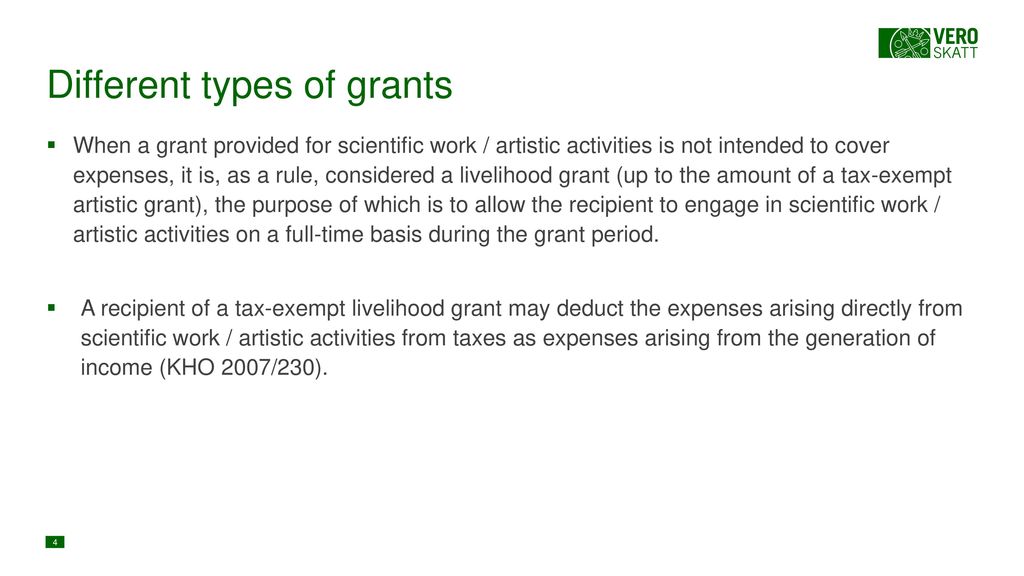
4 Types of Grants For Nonprofits
Grants are gifts given to individuals or companies that do not need to be repaid. Examples of grants include research money, education loans, and stock options.
The government provides grants to organizations to promote public service and stimulate economic activity. Furthermore, these funds support essential recovery initiatives as well as ground-breaking research.
Program/Project Grants
Program/Project Grants (PPGs) are traditional NIH research grants that fund broadly-based, multidisciplinary research programs. Generally, they last long-term and involve organized efforts of relatively large teams conducting projects to explore various aspects or components of the basic objective of the PPG.
PPGs are frequently employed for projects requiring shared resources and facilities that are accessible to all members of a research team, as well as for activities that support the primary research.
Writing is the most crucial element of the grant application process, so be sure to dedicate ample time and energy into this step. Crafting an outstanding grant proposal can make all the difference in receiving funding and achieving your research objectives.
At RISCA, we strive to foster a diverse peer review process that brings fresh and relevant input from an ever-evolving field. When curating our application review panels, we take into account age, gender, disability status, sexual orientation, geography, artistic discipline experience and connection to arts and culture.
Operating Grants
Operating grants are one of the most sought-after types of grants for nonprofit organizations. They come without conditions and can be put to great use in helping a nonprofit flourish.
They can be utilized for daily business expenses like rent, salaries, furniture and other overhead costs. Furthermore, you may use them to invest in equipment that will enable your organization to expand and perform at its highest potential.
Operational grants are highly sought-after funding awards that reward organizations that have demonstrated impact. As such, they tend to be both highly sought-after and difficult to secure.
Funders require evidence of a nonprofit’s strong executive team, board members and an organized plan for how funds will be utilized. Furthermore, they require assurances that your organization is financially sound and has the capacity to continue growing successfully into the future.
Capacity Building Grants
Capacity building grants are designed to assist nonprofit organizations in developing organizational skills, systems, and strategies. These grants differ from program/project and core operating grants which support outward-facing work.
Foundations and grantmakers often refer to capacity building as “building organizational effectiveness.” They believe that nonprofits must invest in internal systems and operations before they can truly make an impact on society.
Despite this, many nonprofits still struggle to convince funders that they require these types of resources.
Nonprofits must approach capacity-building requests with confidence and strength in their organization’s capacity to carry out its mission. This is an opportunity to demonstrate that your infrastructure has the capacity for expansion, continuing to have a positive impact on its community.
Achieving this can be achieved by outlining a plan of action, outlining how your capacity-building initiatives will result in the desired impact, and making sure future funding sources are secured to guarantee your organization’s ongoing success.
Capital Grants
Capital grants provide funds to assist with the acquisition, final-stage design, construction, repair or renovation, rehabilitation or other capital improvements or deferred maintenance of facilities. They may be used for purchasing a building, purchasing large equipment like computers or vans or acquiring land for a project.
Capital grants differ from program or operating grants in that they often address specific needs. Furthermore, capital grants tend to be more competitive with stringent reporting measures and compliance requirements.
Capital grant opportunities offer organizations an invaluable opportunity to build capacity within their organization. But it’s essential that you incorporate your request for a capital grant into your overall development plan; doing so may enable more funding for your project and boost the likelihood of receiving a grant.
